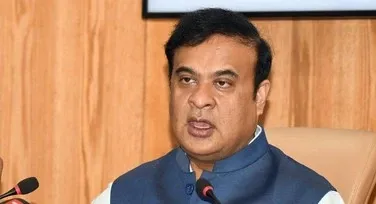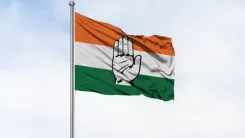Did Indira Gandhi Mishandle the Creation of Bangladesh?

Synopsis
Key Takeaways
- Assam CM criticizes Indira Gandhi's leadership decisions.
- Bangladesh's secular promise has shifted to an Islamic reality.
- Hindu population in Bangladesh has drastically decreased.
- Vulnerabilities in Northeast India remain unresolved.
- Immigration issues contribute to regional instability.
Guwahati, May 11 (NationPress) The Chief Minister of Assam, Himanta Biswa Sarma, recently directed criticism towards former Prime Minister Indira Gandhi, alleging that she inadequately handled the aftermath of Bangladesh's formation following India's significant 1971 victory over Pakistan.
In a statement on X, Sarma asserted that the political leaders of that era missed a “historic opportunity” during this pivotal moment. His comments surfaced amid backlash from Congress members aimed at Prime Minister Narendra Modi, following remarks from US President Donald Trump on Saturday indicating that India and Pakistan had consented to a “full and immediate” ceasefire, facilitated by American mediation.
The agreement between India and Pakistan signifies an immediate cessation of all military operations — on land, in the air, and at sea. Several opposition figures have drawn parallels between PM Modi’s strategy and Indira Gandhi’s management of the 1971 Indo-Pak conflict.
Sarma’s post was titled 'The Myth of Bangladesh's Creation: A Strategic Triumph, A Diplomatic Folly'.
“India's military triumph in 1971 was significant and historic. It divided Pakistan and established Bangladesh. However, while our soldiers achieved remarkable success on the battlefield, the political leadership of India did not secure enduring strategic advantages,” he remarked. He claimed that although the formation of Bangladesh is often celebrated as a diplomatic success, the reality is more complex.
“The military victory of India in 1971 was not accompanied by strategic insight. What could have led to a new regional order turned into an act of unilateral generosity. Had Mrs. Indira Gandhi been alive today, the nation would have held her accountable for mismanaging the decisive triumph attained by our armed forces. The establishment of Bangladesh was not merely a deal — it was a moment of historical opportunity squandered,” Sarma stated.
In support of his claims, the Chief Minister presented six arguments, stating that the formation of Bangladesh was intended to be a secular promise, yet it has transitioned into an “Islamic reality.” “India advocated for a secular Bangladesh. However, by 1988, Islam was declared the state religion. Today, political Islam flourishes in Dhaka, undermining the very principles India fought to uphold,” he remarked.
Discussing the alleged persecution of Hindus in Bangladesh, Sarma noted that the minority group once represented 20 percent of the nation's populace, but their numbers have since fallen to below 8 percent due to systemic discrimination and violence, which he described as a “shameful reality that India has largely overlooked.”
“The Chicken's Neck remains vulnerable... Despite military superiority, India did not address the risk associated with the Siliguri Corridor. A secure land route through northern Bangladesh could have connected the Northeast, yet no such initiative was undertaken,” he added. Highlighting the ongoing immigration dilemma, the Assam CM pointed out that no agreements were made concerning the mandated return of illegal Bangladeshi immigrants.
“Consequently, Assam, Bengal, and the Northeast are confronting unchecked demographic shifts, leading to social unrest and political instability,” he continued. Sarma also claimed that India did not secure access to the strategic Chittagong Port, leaving the Northeast landlocked even after five decades.
He alleged that insurgents found refuge in Bangladesh, which for many years has acted as a base for anti-India militant factions and exploited the void that India failed to fill in 1971. “Conclusion: A Victory Undone by Silence,” Sarma concluded.







